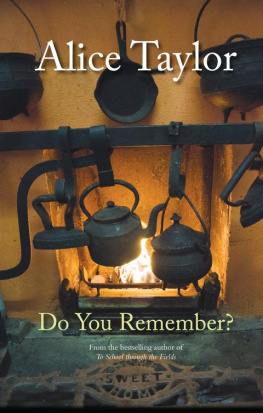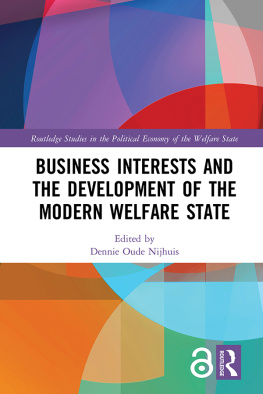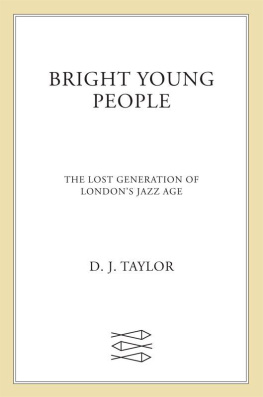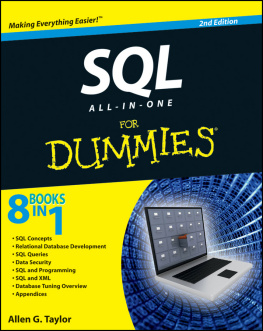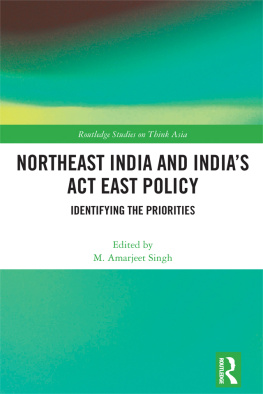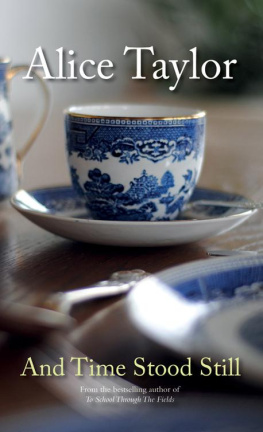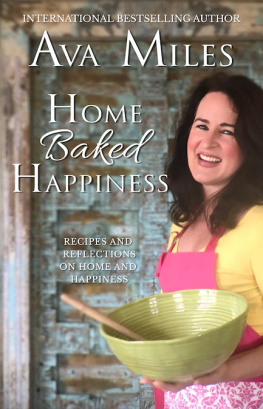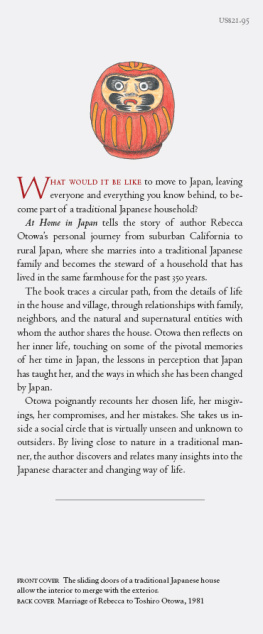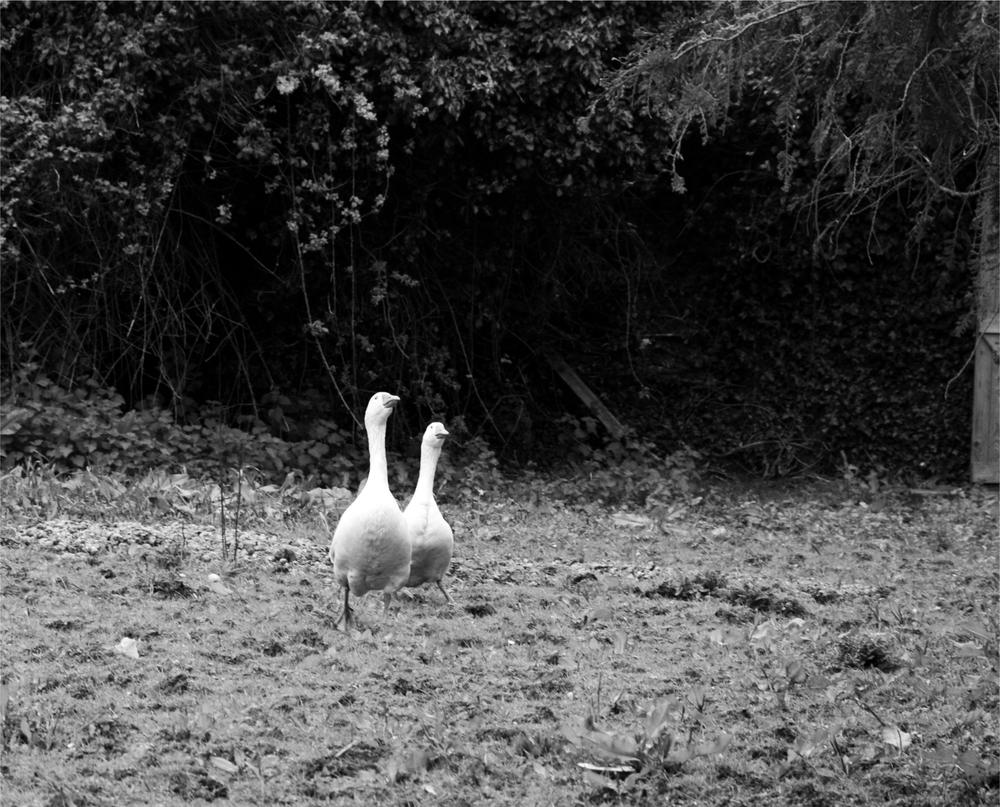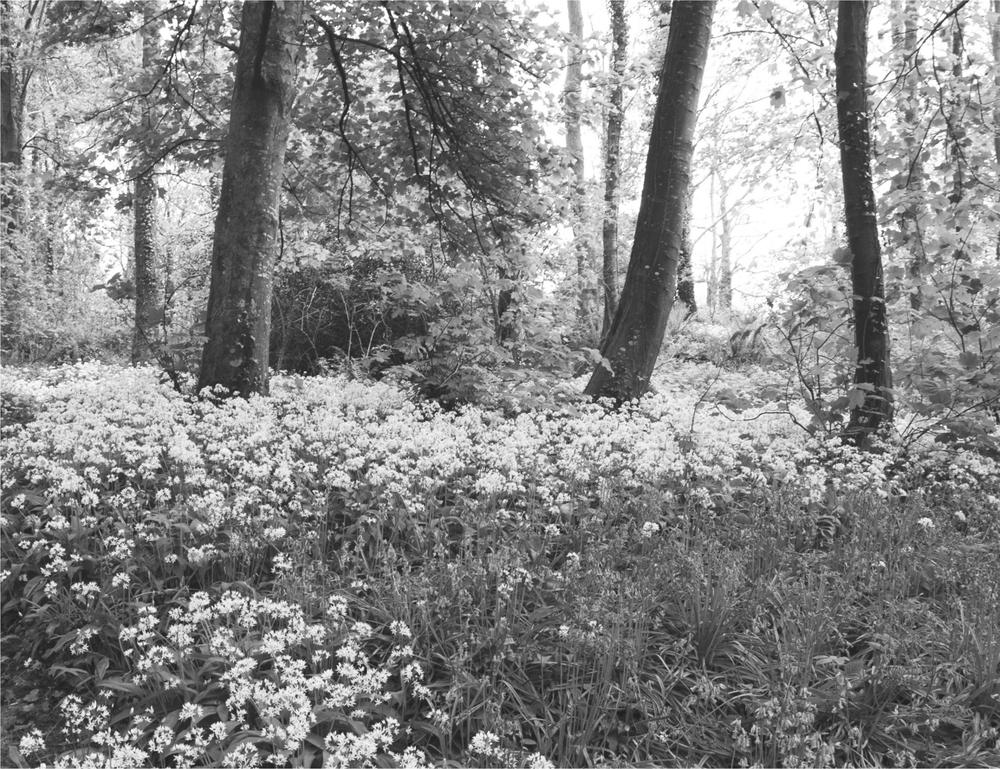About And Time Stood Still
And Time Stood Still warmed my heart and reminded me of the value of family, friendship and community
Irish Independent
in this book, Alice Taylor is singing my song
Irish Independent
this book is a very practical one written from the heart by a woman who like most of us will have experienced grief in all its forms during lifes journey
Western People
About The Gift of a Garden
poetical, beautifully descriptive delightful read
Country Gardener Magazine
definitely one to read with a cup of tea in your own garden
The English Garden
will provide restful reflection for many
Sunday Independent
For my brother Tim, who was my inspiration and mentor, and for the ancestors who kept life flowing through the veins of rural Ireland
Contents
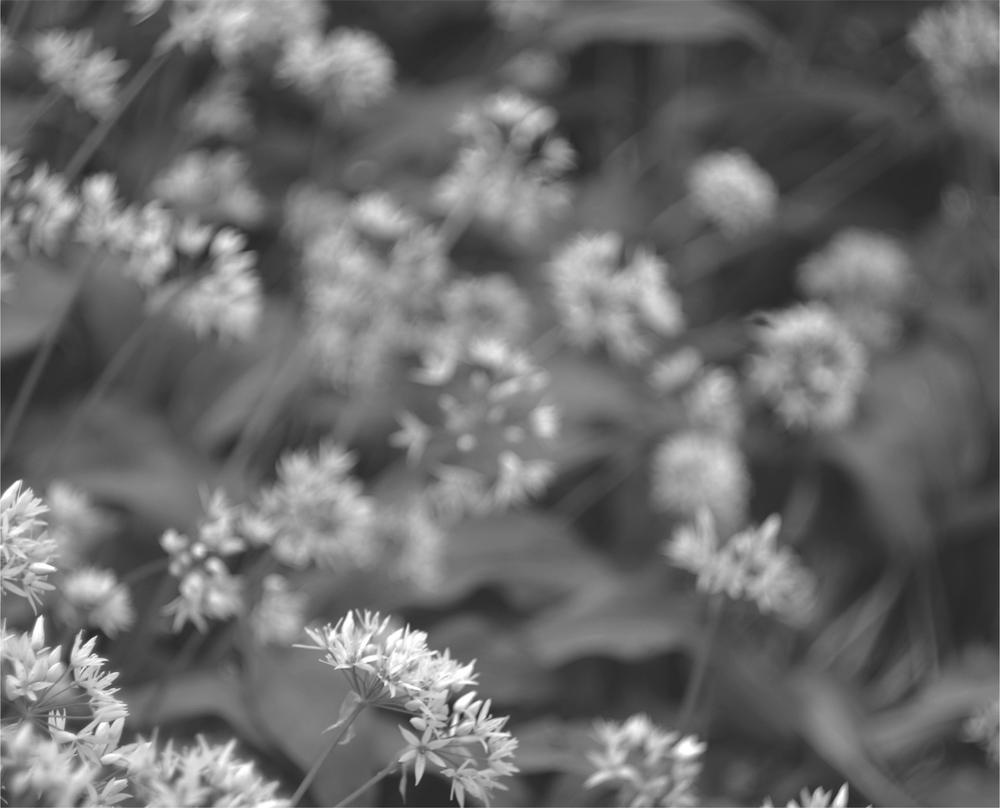

I n a long-forgotten garden at the back of all our minds are the faded flowers of a past season. These memory flowers are rooted into the fabric of our being where they sleep quietly beneath years of living. Then one day you hear a song on the radio or a special piece of music is played. Leafing through a book you come across the line of a poem you learned in school. On a garden visit an evocative scent wafts up your nose. You are searching for something in a drawer and an old photograph taken long ago with a brownie camera falls out.
And suddenly you are in another place. A memory butterfly awakens, gently flutters onto one of those faded flowers and gradually it comes to life. Wisps of memory begin to float around your mind and slowly come together. A faded scene forms and beckons you back to a long-forgotten place. As the vague picture begins to emerge you might turn hesitantly to a friend and tentatively ask, Do you remember?, or you might say to a person who has a different memory road, Wait till I tell you how we did
As you journey back, it is wonderful to have a travelling companion. Maybe someone who has been there too and remembers, or a visitor to those times, someone new to your remembered way of life. You are on the remembering road and a companion is travelling back with you. Together you begin to fill in the missing bits of the jigsaw and explore long-forgotten things. There is a huge sense of satisfaction as the full picture begins to come alive. Sharing the experience is half the joy of travelling the Do You Remember road. And for those new to these long-gone times, having a guide who was there, who can draw you in as if you too were actually reliving these very experiences, is wonderful.
That is what this book is all about. My wish is to be a companion on your journey to other times and other ways, as I remember my home place, my grandmothers dresser, the tea in the parlour, minding the chickens, or poems we learned at school. Clinging to the inside of all our minds like cream to the inside of a jug are the memories of our earliest years. We never quite forget them.
I hope you enjoy sharing these memories with me and that you relish the journey back along the memory road!
How nice to sit and think awhile
Of little things to make you smile
Of happy things you did in fun
Long ago when you were young
To think of people who were kind
And left a ray of light behind
People who were nice to know
When you were young long time ago
So come and sit with me awhile
And think of things to make us smile.
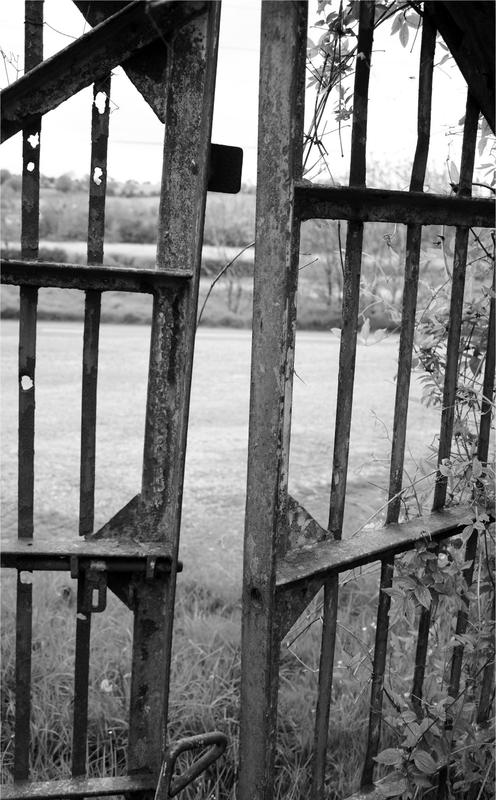
I t takes a lot of living to make a house a home. The living connects ancestry to posterity, creating a nucleus that supports and strengthens the extended family. Like a tree, families put down roots that give support and stability to extended branches. The home family provides a shelter belt and that sheltering can encompass the extended tribe when life gets stormy.
As we become teenagers and adults, many of us may develop a certain disdain for our parents way of life and discard many of their ideals. We may even revolt against them or indeed abandon their ways entirely, but as we mature we often discover the wisdom in some of the old ways and that we have something to learn from previous generations. Life has a strange way of opening our eyes to the value of things we once considered outdated. Seamus Heaney captured it beautifully when he said, I learned that my local County Derry [childhood] experience, which I had considered to be archaic and irrelevant to the modern world, was to be trusted.
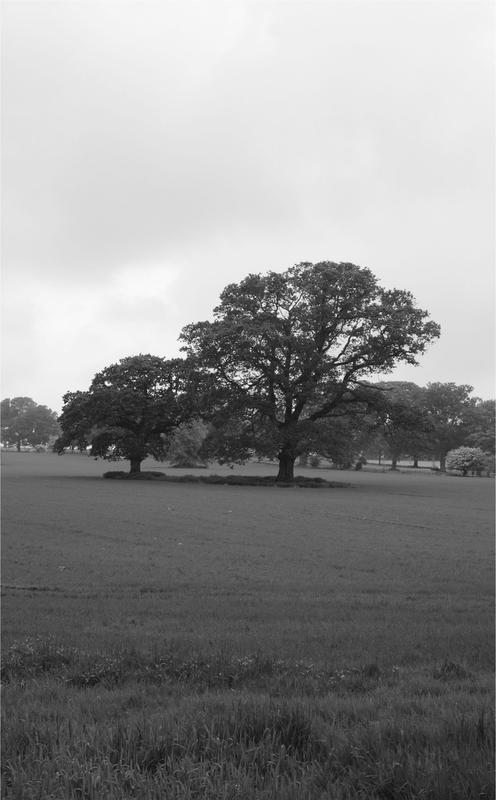
Growing up in a home where eight generations of our family had lived I was made aware at an early age of the far-reaching influence of roots. During my childhood, people whose ancestors had been born in our house came back from all over the world to walk the land that had spawned their ancestors. It matters not whether your home place is a tiny cottage or a grand house its umbilical cord has the same pulling power.
Emigration was always part of Irish life and nowhere more than in the hilly regions of the Cork-Kerry border where I grew up and where wresting a living from the land had never been easy. Emigration was the answer to the problem. Young men from our area went mostly to Oregon and San Francisco, and to Australia, and the girls to Boston, New York and Chicago among other places. Some never came back, but generations later their descendants came to explore their roots. These people had grown up in the shadow of their parents and grandparents homeland and wanted to find out more about it. It was important then that the people in the home place gave them time, and that they sat down and told them about their ancestral roots. Sometimes these descendants had waited many years and travelled long distances to walk the fields where their parents or grandparents had played and worked as youngsters. Their parents and grandparents had often sent back hard-earned money to keep their home fires burning and their descendants now wanted to hear the stories of the home place which they had probably heard talked about since they were children.
I was amazed as a youngster to discover that deep in the marrow of human beings lies a strong need to connect with our life source not unlike the salmon and the geese who each year instinctively travel across the world to come back to the birthing place of their ancestors. The laws of nature are beyond our human understanding.
And so, when the visitors came back to our home place long ago all work on the farm was suspended, which impressed me greatly. It could well have been a sunny day and we might have a field of hay mown and ready to be saved. Usually nothing simply nothing took precedence over this in my fathers world. After all, this was our bread and butter! But, prompted by my mother who treasured family history, my father put the returning descendants before saving the hay. His action spoke louder than any words. At the time we had an old man working with us who constantly reminded my mother that Children have only what they see, and later in life a nun at school told us Sound is heard but example thunders and its true! My parents were laying the foundation of deep respect for family. I was very impressed.

